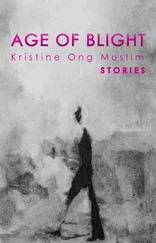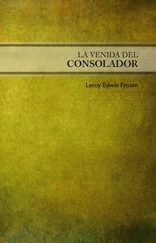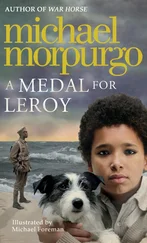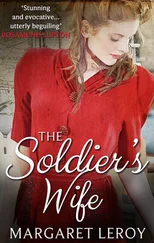Then, by unspoken agreement, we turned away and melted into the shrubbery, weapons pulled, waiting for any response to the noise from inside or out. When none came, we entered the house. I cautiously sniffed and was relieved to smell nothing of the residents who had lived there.
Steve said, “You take the kitchen and I’ll check the rest of the house and bring you a pillowcase from a bedroom.” Obviously, this was not Steve’s first rodeo. It seemed I was not the only one to use pillowcases to carry things.
We’d already discussed our wants and needs. Canned food was way down on the list because of bulk and weight. Dried, powdered, and dehydrated food came first because it was lighter to carry so more could be taken with each trip. We didn’t care what it was, we’d learn to like it.
Ammunition and weapons were right up there near the top of our list. If we used the kayaks, there wouldn’t be much room to carry supplies on each trip, so we had to take what items would do us the most immediate good. This was intended to be a snatch and grab mission.
The kitchen held little. I grabbed a few cans of fruit on impulse. For some reason, I was craving it. There was also a butcher block with several knives. Sue had struggled with cleaning the salmon. So, I took three but cautioned myself not to present them as some sort of gift. She would resent that.
While I searched the rest of the kitchen and even part of the dining room while waiting for Steve, my mind was not on it. It was on Sue. Not that I should miss her already, but I did.
My larger concern was one I didn’t want to admit. It was Steve.
It was not that I didn’t like him or that I distrusted him. No, it was that he was too easy to talk to, treated us well, and he knew things . Not only sailing, boats, but other things. And that he was reluctant to kill. The man who had come aboard with him had been Steve’s first kill.
The problem of Sue that was eating at me was more basic. Steve did so many things I struggled with. He did them all better, and he did them in a friendly manner any woman like Sue would appreciate. He treated her as well as he did me. I resented him because he treated us well. That thought also concerned me. Had my perception of reality become so twisted?
Those thoughts came to me while standing alone in the dark. However, they took me to the heart of my problem. It was my problem. Not Steve’s or Sue’s. My lack of social skills coupled with being uncomfortable in groups meant I’d had few friends in my life. None of them had been close, not even in grade school and certainly not in high school where everyone was self-centered and ready to gang up on anyone who was the slightest bit different.
What if Sue started liking Steve more than me? Could I send him off my boat? Would I? And even if I did, would Sue remain with me or go with him?
Steve returned with a pitifully small amount in his pillowcase.
The tiny beam of light from his flashlight revealed his feet and the floor directly in front of him as he moved. I believed as long as the light was directed downward, with his modifications to the lens, anyone else would have trouble seeing us from a hundred feet away.
“Not much?” I asked.
“No. We’ll leave what we have outside and gather it on the way back. But I did find some small cans of spray paint.”
That confused me but I didn’t question it.
He seemed to realize my problem and said, “We’ll use it to paint over the lights on the electronics, then use a pin to scratch a little hole in the polish that we can see but won’t be seen from a distance.”
I’d had a similar idea but didn’t express it. That would make me feel competitive and small. The next house we approached looked like it was made of logs. It turned out to be a kind of siding made from the outer quarters of logs stained a rich brown. It provided a very nice look, and in the daylight, it must have been impressive on a small house that otherwise was plain.
There were French doors leading out to a wide veranda with a railing around it. Plastic plants and flowers overflowed hanging baskets and our feet thumped across the soggy wooden deck. At the double doors, we paused. Steve leaned back, raised his booted foot, and kicked where the two doors came together. Both flew open with a crash.
Our pistols were in our hands as we stepped either side of the open doors, then the smell hit us. Dead people. Rotted flesh. The buzz of a thousand flies sounded as we disturbed their feasting or whatever they were doing. Not one or two bodies, but many. I retched first, but Steve duplicated my reaction as both of us backed from the porch and stumbled onto the lawn to escape the smell.
Finally, Steve said, “There’s nothing in there that would make me go back inside.”
“Agreed,” I muttered as I wiped my mouth with the back of my arm.
At the third house, we gathered more canned goods, a well-equipped toolbox, and Steve selected a variety of fishing gear, stuffing it into another pillowcase. I told him Sue had four poles and a tackle box.
He continued gathering what he wanted, even adding more fishing equipment. “Listen,” he said, “Supplying food for ourselves may become the hardest thing to do. We’re going to lose lures and hooks from broken lines or catching them on the bottom. In a few months, the fishing gear may be the most valuable thing we can own… or trade.”
It made sense. I took the time to survey the living room hoping to add to the things we wanted but found little. The house seemed to be a vacation home, like the first. There was little stocked there. However, in a hall closet, I found a small stack of folded, unused, rain gear, waterproof bib-pants and jackets with hoods. I sorted through and selected three sets that would fit us, then carefully placed the others behind the sofa in case we needed more. We’d know where to come.
Steve was ready to leave. We went to the front and there was enough light to see the Truant , like a silhouette on a gray ocean. There was not a light to be seen aboard. Despite that, Steve’s idea with the paint was a good one. From another angle, there might be lights on radios or GPS equipment that could be seen like beacons on rocks.
The next house was smaller, covered in weathered shingles and half the size of the others. The two after that were a quarter mile down the road. The doors on the nearer house were sturdy, solid wood from the look and feel, so we went to a window on the side. The bottom was knee-high, and construction looked old.
I feared the noise the window was going to make. Instead of one solid sheet of glass, it was several small panes connected with little white strips of wood. All that crashing to the ground would bring anyone nearby. Steve went to it first.
He gently used the butt of his pistol to almost soundlessly break one pane of glass near the middle. He reached inside and felt around, then smiled at me as he found the lock and turned it. His arm back outside, he lifted the sash—and even better, there was no offending smell. Not at first.
I stepped inside and found the room filled with the odor of years of stale tobacco smoke. My tiny beam of light fell on overflowing ashtrays, two of them, each six inches across sitting on a small table. While not the same stench as the house occupied by the dead, it reeked all the same.
Steve came in after and said, “This may be good.”
“Good?”
“This isn’t a vacation house.” He moved ahead as he said, “People lived here full time. Take the kitchen again, Cap?”
“Why do you call me Cap when giving me orders?” I knew it was not the time or place but needed to say something.
“Respect,” he promptly said. “Giving you the option to override what I suggest.”
Читать дальше












